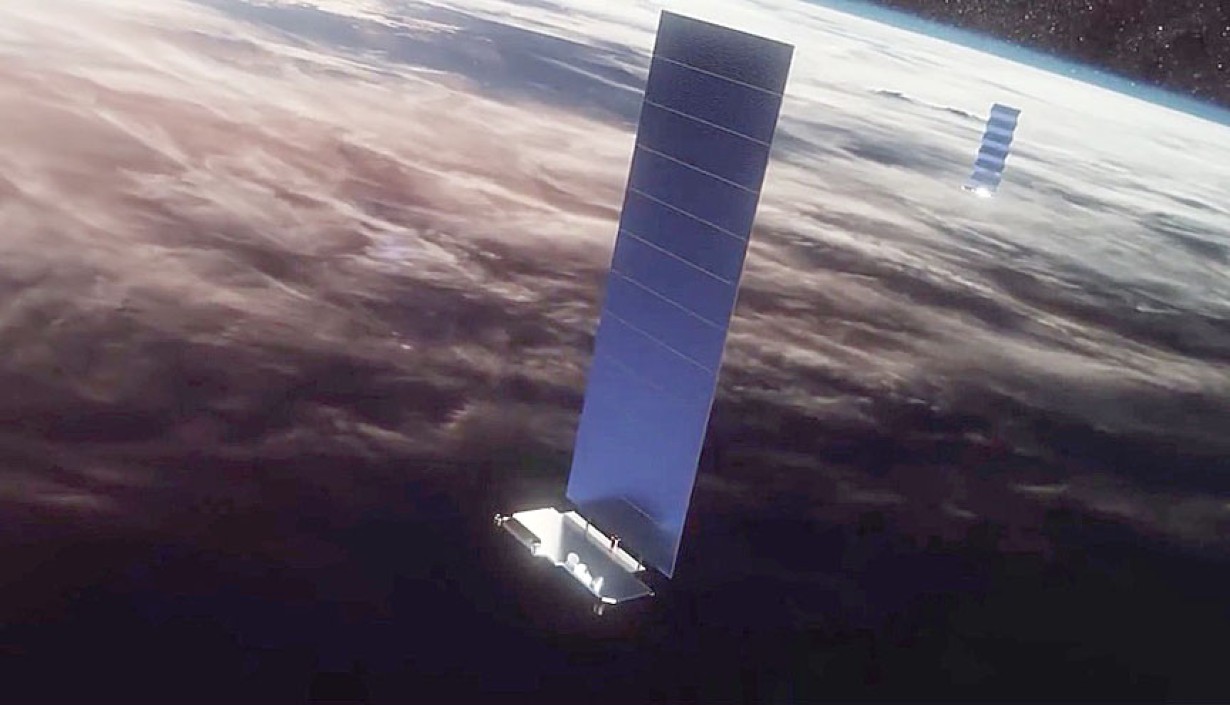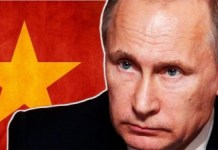Days after Russia was accused of using the Starlink satellite network to conduct military operations, Ukraine’s Main Intelligence Agency representative announced that Starlink satellite communication systems are being sold in Russia through third countries, despite Elon Musk calling it fake news.
Andriy Yusov, the representative of the Main Intelligence Agency of the Ministry of Defense of Ukraine, also announced that efforts are in progress to counter this threat.
“Russia continues to work through the so-called ‘parallel import,’ but in fact – smuggling. Yes, we will not name specific countries; this information needs clarification, but Starlink is freely available in Russia on open online platforms,” he said on February 12.
Yusov noted the Russian front-lines use of them has improved from the previous year and is now “more systematic and streamlined.”
“That is, the occupiers are betting on these devices. Of course, work is underway to neutralize this threat. We will not disclose all the threats now. No one claims that Starlink is officially being sold to the Russians.
“But today Russia is not only the number one terrorist country, but also the number one smuggler country, so this is a problem that they are working on today,” the service was quoted as saying by Interfax news agency.
The intelligence agency confirmed the use of Starlink by Russians over the weekend. It said that interception of conversations had revealed that the 83rd Air Assault Brigade of Russia, active in the Donetsk region, is using the Starlink terminals to access the internet.
Starlink terminals are freely available on the territory of Russia, they get there through third countries, – representative of the DIU Yusov on the air of the telethon.
According to him, the occupiers had Starlink terminals a year ago, but now they are being used more… pic.twitter.com/sncWwcqtbi
— Oriannalyla 🇺🇦 (@Lyla_lilas) February 12, 2024
Some unknown Ukrainian sources alleged last week that Ukrainian troops discovered Russia’s frontline usage of the satellite-connected gadgets some months ago. Russian forces appear to be currently using tens of Starlink terminals across the long front.
Citing reports on social media, Ukrainian media first reported that the Russian military was using the Starlink service inside of Ukraine. Starlink terminals bought for army troops have also allegedly been shown by well-known Russian volunteer groups who support the Russian invasion.
The recent allegations made by Ukraine may put it on a collision course with Elon Musk yet again. The SpaceX CEO has continued to deny the claims, maintaining that his company does not do any business with the Russian Army.
Musk’s Starlink Triggered A Controversy…Yet Again!
When the reports of Russia using Starlink first emerged, Elon Musk Musk clarified on X: “To the best of our knowledge, no Starlinks have been sold directly or indirectly to Russia.”
On February 11, Musk took a more firm stand against the accusations levied by Ukraine and said: “Several false news reports claim that SpaceX is selling Starlink terminals to Russia. This is categorically false. To the best of our knowledge, no Starlinks have been sold directly or indirectly to Russia.”
Elon Musk and Russia are on the same page regarding the latter’s use of Starlink. After the Ukrainian Military Intelligence officially made the allegations, the Kremlin hit back, saying that since Elon Musk’s Starlink satellite internet technology was not authorized for use in Russia and was not formally supplied there, Russian troops did not use it.
A number of false news reports claim that SpaceX is selling Starlink terminals to Russia.
This is categorically false.
To the best of our knowledge, no Starlinks have been sold directly or indirectly to Russia.
— Elon Musk (@elonmusk) February 11, 2024
Kremlin spokesman Dmitry Peskov told reporters, “This is not a certified system with us; accordingly, it cannot be officially supplied here and is not officially supplied. Accordingly, it cannot be used officially in any way.”
“That is why, perhaps, we should not intrude into the discussion between the Kyiv regime and the entrepreneur Musk.”
The allegations made by Ukraine are nevertheless severe, given that the Starlink network has been used by the Ukrainian forces since the initial days of the invasion, mainly to launch attacks against the Russian troops. Russia’s use of the same satellite could put Musk in a spot.
The development is significant as following Russia’s invasion of Ukraine in February, Musk and the US government sent thousands of Starlink equipment to Kyiv, allowing Ukrainian forces to communicate in previously inaccessible areas. Further, the equipment was sent almost immediately after Musk received a request on Twitter.
Starlink satellites will not close the link in Russia
— Elon Musk (@elonmusk) February 11, 2024
It is almost ironic, then, that Musk and the Kremlin are speaking in unison against the Ukrainian allegations that have once pitted Kyiv’s regime and the Starlink owner against each other. Ukraine and Elon Musk have been intermittently locking horns for several months now.
Ukraine’s latest allegations follow Walter Isaacson’s biography of Starlink’s owner, Elon Musk, which revealed details of the satellite system’s use in the conflict. According to the book, Musk allegedly gave his engineers covert orders to shut down his company’s Starlink satellite communications network close to the Crimean coast to thwart a Ukrainian stealth attack on the Russian naval fleet in October 2022.
Drones from a Ukrainian submarine carrying bombs “lost connectivity and washed ashore harmlessly” as they got closer to the Russian fleet, according to Isaacson.
Musk made the decision that left Ukrainian officials pleading with him to restart the satellites because he was terrified that Russia might use nuclear weapons in retaliation for a Ukrainian attack on Crimea. This concern was reinforced by Musk’s talks with high-ranking Russian officials, according to Isaacson.
In the fall of 2022, Ukrainian troops complained about the satellite network not working on the frontline, causing a catastrophic disruption in their operations. However, the billionaire later clarified that switching off the network aimed to prevent Moscow from using it.
Musk was also accused of directly engaging with the Russian President and negotiating with him – another claim he categorically denied.

He somehow also landed in a soup when he suggested that Crimea, which Moscow annexed in 2014, be recognized as a part of Russia and that Ukraine maintain its neutrality. He asked Twitter users to vote on whether or not to accept his idea, which infuriated Ukrainians and triggered an angry response from Ukrainian officials.
Some 42,000 Starlink terminals in Ukraine provide military, government, and civilian communications. The terminals also play an increasingly important role in Ukraine’s counteroffensive, giving the Ukrainian troops portable communication options in rural areas along the front that are too remote or where cellular towers have been damaged.
It is almost amusing, then, that despite providing direct assistance to the Ukrainian troops, Musk has been at the forefront of several controversies that have angered Kyiv, with the latest being a clear winner due to the severity of the allegations.
- Contact the author at sakshi.tiwari9555 (at) gmail.com
- Follow EurAsian Times on Google News




